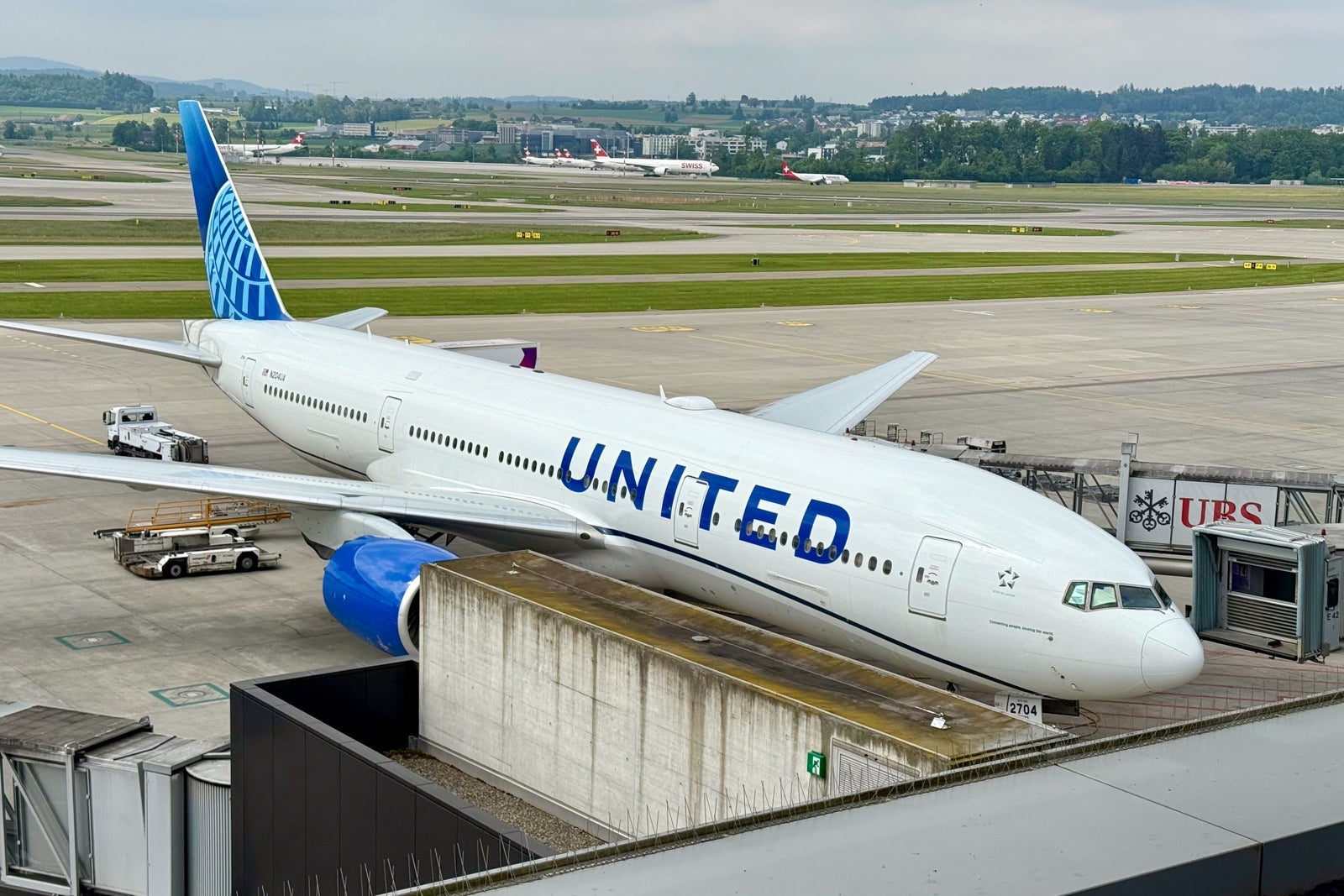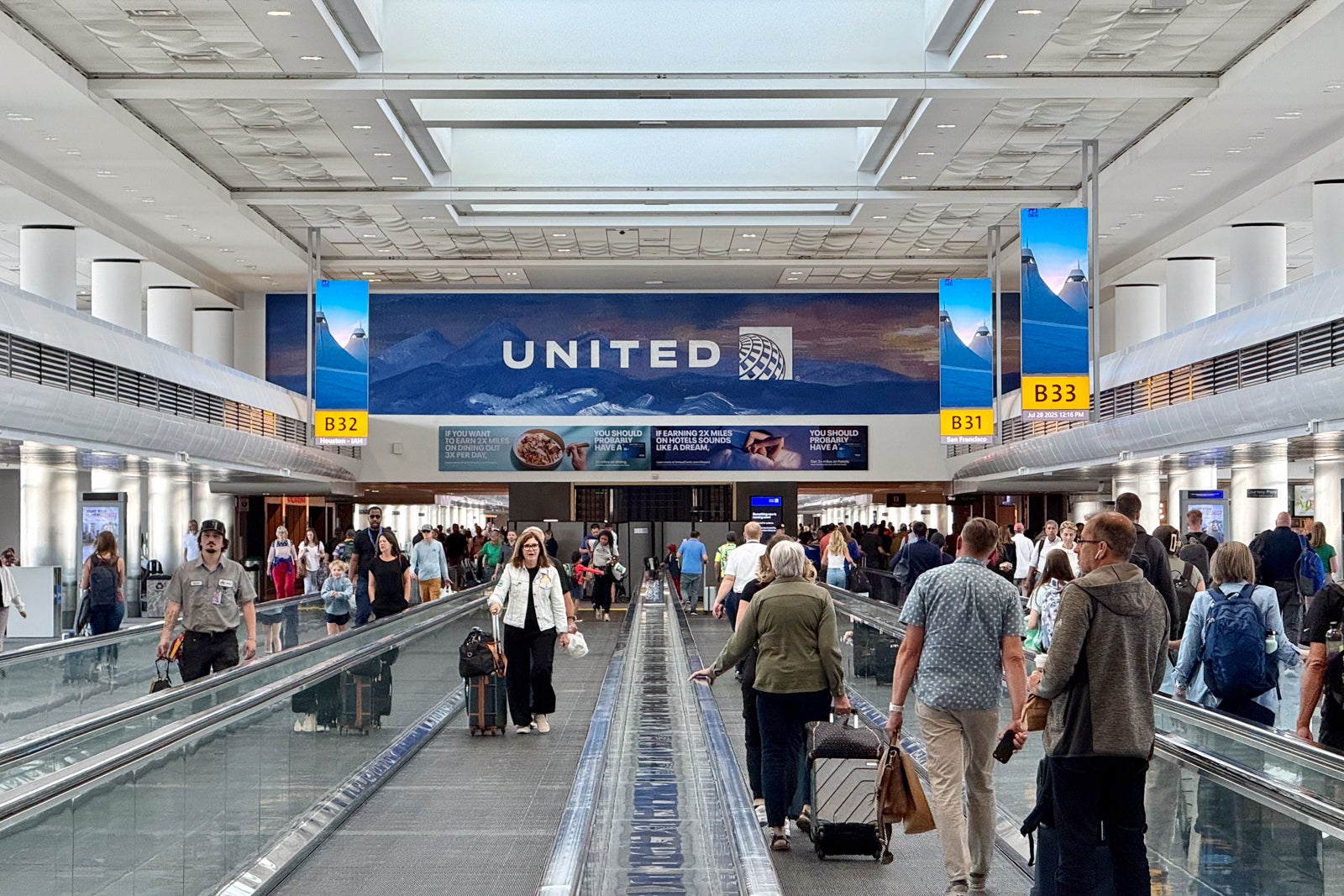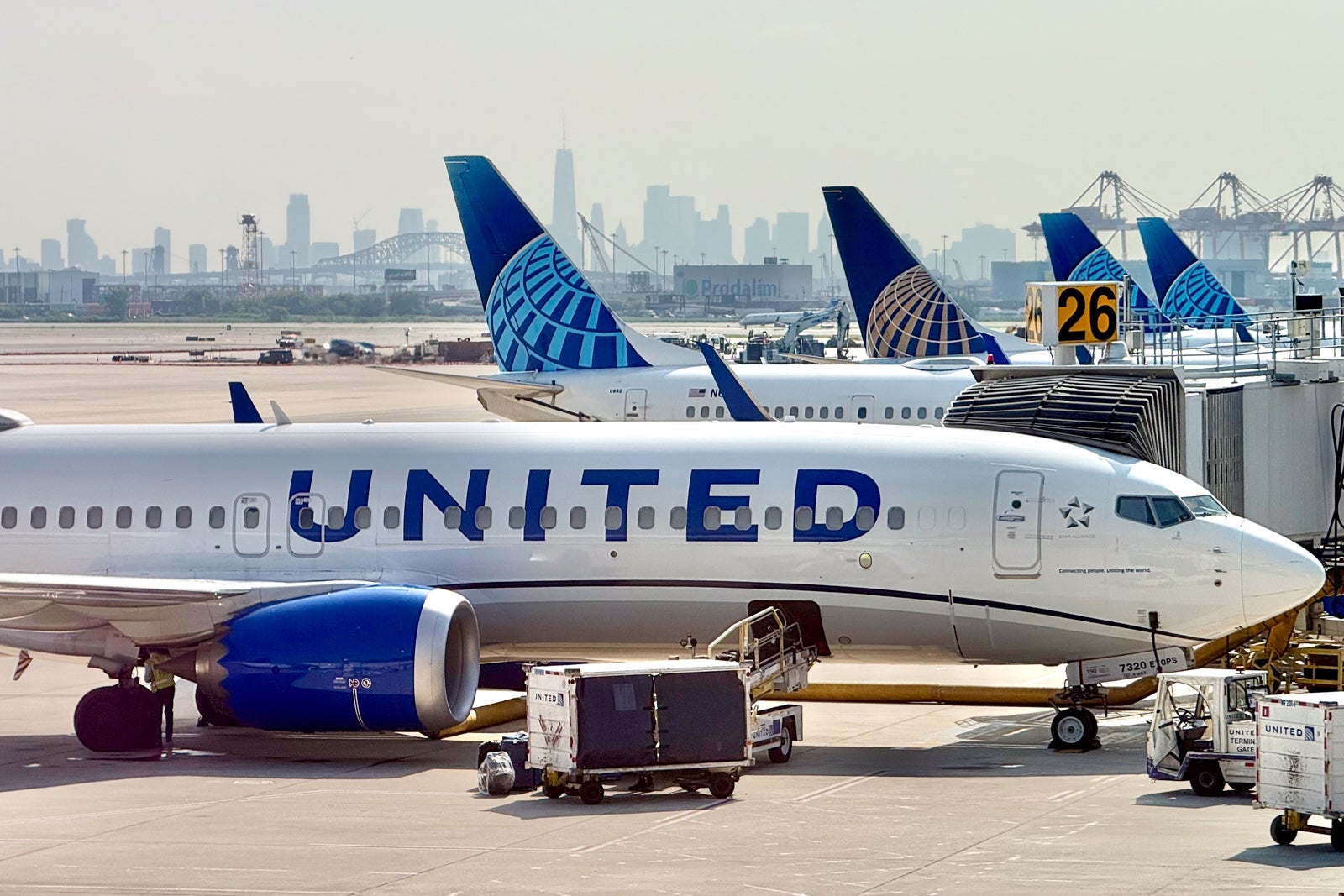As a United Quest℠ Card (see rates and fees) cardholder, I already enjoy perks like free checked bags, priority boarding, expanded award availability and travel credits. But as the end of the year approaches, and I inch closer to United Airlines Premier Silver status, I’ve been wondering: What would elite status actually add that my card doesn’t already cover?
If you’re in a similar spot, here’s a breakdown of how United Premier status and United credit cards compare, including where they overlap, where they differ and how to decide which path is right for you.
Related: Last-minute strategies for United Premier elite status
What do you get with United Premier status?
United’s MileagePlus Premier program is built to reward loyalty in the air. The more you fly (and spend) with United, the more benefits you unlock — from complimentary upgrades and bonus miles to preferred seating and priority services.
To qualify, you’ll need to meet thresholds based on Premier qualifying flights, or PQFs, and Premier qualifying points, or PQPs, earned through flying or spending on a United credit card.
For 2025 and 2026, United raised qualification thresholds, meaning you’ll need to fly or spend more to maintain the same tier.
Once earned, your status is valid for the rest of that year, the following year and through Jan. 31 of the second following year.
For example, if you earned status Dec. 1, 2025, you would have status for the rest of that month, all of 2026 and until Jan. 31 of 2027. So, qualifying early gives you the longest runway to enjoy your benefits.
Let’s have a look at how the tiers compare.

Reward your inbox with the TPG Daily newsletter
Join over 700,000 readers for breaking news, in-depth guides and exclusive deals from TPG’s experts
2025 United Premier status tiers
| Tier | Qualification requirements (2025)* | Mileage earning rate | Key perks |
|---|---|---|---|
| Premier Silver | 6,000 PQPs or 15 PQFs and 5,000 PQPs | 7 miles per dollar spent | • One free checked bag in economy (three free checked bags in premium cabins)
• Priority Group 2 boarding • Complimentary Economy Plus access at check-in (including one companion) • Complimentary domestic upgrades (day of departure) • Star Alliance Silver status • Avis Preferred Plus status |
| Premier Gold | 12,000 PQPs or 30 PQFs and 10,000 PQPs | 8 miles per dollar spent | • Two free checked bags in economy
• Priority Group 1 boarding • Complimentary Economy Plus access at booking (including one companion) • Complimentary upgrades up to 48 hours before departure • Star Alliance Gold status (including international lounge access) • Marriott Bonvoy Gold Elite status • Avis Preferred Plus status |
| Premier Platinum | 18,000 PQPs or 45 PQFs and 15,000 PQPs | 9 miles per dollar spent | • Three free checked bags in economy
• Complimentary Economy Plus access at booking (including up to eight companions) • Complimentary upgrades up to 72 hours before departure • Star Alliance Gold status (including international lounge access) • 40 PlusPoints (upgrade currency) |
| Premier 1K | 28,000 PQPs or 60 PQFs and 22,000 PQPs | 11 miles per dollar spent | • Priority preboarding
• Complimentary upgrades up to 96 hours before departure • Star Alliance Gold status (including international lounge access) • 280 additional PlusPoints (320 total) • Highest upgrade priority |
*In order to qualify for United status, you must take at least four United or United Express flights.
Beyond the tangible perks, elite status also comes with an intangible layer of conveniences, which include:
- Access to the Premier Priority Desk: Dedicated agents who can rebook flights faster during disruptions.
- Complimentary Economy Plus seating: Available to all tiers at different points in the booking timeline, and often translates into extra comfort on longer routes.
- Upgrade windows: While competitive and not guaranteed, upgrade opportunities through status remain one of the few ways to regularly experience United’s domestic first or Polaris cabins without spending additional miles or cash.
For travelers who fly United regularly (even a few times per month), these benefits can add up; however, they overlap heavily with what United’s credit cards already offer.
Related: How 7 TPG staffers are earning United Premier status in 2025
What do you get with a United credit card?
All cards offer some combination of free checked bags, priority boarding and expanded award availability. These benefits can save you hundreds of dollars per year and can simplify travel, even for infrequent flyers.
Let’s take a look at how the United cards compare.
United credit cards compared
| Card | Annual fee | Key perks | PQP earning |
|---|---|---|---|
| United Gateway℠ Card (see rates and fees) | $0 | Two free checked bags (after spending $10,000 in a calendar year with your card), expanded award availability (after spending $10,000 in a calendar year with your card), no foreign transaction fees | None |
| United℠ Explorer Card (see rates and fees) | $0 intro annual fee for the first year ($150 after) | One free checked bag, priority boarding, two United Club one-time passes per year (issued after account opening and on each anniversary) | Up to 1,000 PQPs per calendar year |
| United Quest Card | $350 | Two free checked bags, priority boarding, expanded award availability, $200 in United TravelBank cash annually, annual 10,000-mile award flight discount | Up to 18,000 PQPs per calendar year |
| United Club℠ Card (see rates and fees) | $695 | United Club membership, two free checked bags, Premier Access travel services (priority check-in and boarding), complimentary Premier upgrades on award tickets (on select United-operated flights, when available), 1,500 bonus Premier qualifying points each year | Up to 28,000 PQPs per calendar year |
| United℠ Business Card (see rates and fees) | $0 intro annual fee for the first year ($150 after) | One free checked bag, priority boarding, two United Club passes per year (issued after account opening and on each anniversary)
|
Up to 4,000 PQPs per calendar year |
| United Club℠ Business Card | $695 | Two free checked bags, Premier Access travel services (priority check-in and boarding), United Club card membership (for primary cardmembers and their eligible travel companions) | Up to 28,000 PQPs per calendar year |
The information for the United Club Business Card has been collected independently by The Points Guy. The card details on this page have not been reviewed or provided by the card issuer.
In addition to the above perks, select United cards include valuable trip protection and primary rental car coverage, which can be more robust than what some premium general travel cards offer. United cards can also help you earn status, with PQPs accrued through spending counting toward elite qualification.
The United Quest Card, for example, is currently offering new cardholders 70,000 bonus miles plus 1,000 PQPs after they spend $4,000 on purchases in the first three months from account opening, which can be a fast track to status. The 1,000 PQPs I recently earned through my Quest card welcome offer, combined with a busy year of travel, have already put me well on my way toward earning Silver status for the first time.
As a cardholder, one major perk is United’s expanded award availability, as it unlocks Saver awards that non-cardholders and non–Premier members can’t access.
Saver awards offer the best value for your miles but are limited, while Standard awards are more expensive and often reflect the cash price of the ticket. The advantage for United elite members and cardholders is that they can see extra Saver-level seats (known as XN space) that aren’t visible to most travelers.
Here is how it looks as a cardholder (notice the XN):

However, non-cardholders who do not have elite status will see the following flight price:

This perk can save you a significant number of miles over time, making a United credit card even more valuable for frequent travelers, especially those who do not already have status.
Related: Current United MileagePlus credit card welcome offers
Where do United status and United cobranded cards overlap?
Here are some of the key perks that select status and cards offer:
- Checked bags and boarding priority: Most cards offer at least one free checked bag and Group 2 boarding, which is similar to Premier Silver.
- Award travel advantages: Both offer expanded Saver and Everyday award availability, improving redemption options on popular routes.
- Economy Plus or preferred seating: While cards don’t guarantee upgrades, some provide partial or temporary access to preferred seating.
- Contribution toward status: Spending on cobranded cards earns PQPs, helping cardholders inch closer to status without flying extra segments.

For moderate travelers, these overlaps can cover nearly all the perks they’ll regularly use.
Related: Why I charged $50,000 on my United card to get closer to Platinum elite status
How United status and United cards differ
While there’s some major overlap, the differences are where elite status begins to show its unique value.
Here are the key differences:
- Upgrades: Complimentary upgrades on domestic and international flights (which are not a benefit on cobranded cards) are among the biggest differentiators.
- Bonus miles on flights: Elite members earn higher mileage rates than cardholders, which compounds significantly for frequent flyers. A Premier 1K member earns 11 miles per dollar spent on United flights compared to the 1-4 miles per dollar spent on cobranded cards.
- Alliance benefits: Premier status includes Star Alliance recognition (Silver or Gold), which unlocks access to lounges, priority check-in and boarding on partner airlines — benefits no card can provide.
- Operational priority: Premier status grants you access to the Premier Priority Desk and higher rebooking priority when things go wrong, which is an advantage most United cards don’t offer. This can make a big difference during delays or cancellations, helping you get rebooked faster and onto alternate flights before they fill up.

Essentially, cards handle convenience, while status delivers recognition and access.
Related: Best ways to earn airline miles: From online shopping to credit cards
How to decide between United status and a United card
Deciding whether to chase United status or rely on a United card comes down to travel habits and priorities.
Consider a United credit card if:
- You fly United only a few times a year, but still want perks like free checked bags and priority boarding.
- You value built-in protections such as trip delay, cancellation and rental car insurance.
- You want to earn miles on everyday purchases to boost your balance faster.
- You prefer guaranteed benefits without meeting annual flight or spending thresholds.
Aim for United elite status if:
- You fly United (or Star Alliance partners) regularly and want upgrades, better seats and more flexibility when traveling.
- You’re looking to maximize your mileage earning — elite members earn more miles per dollar spent.
- You value priority treatment during irregular operations, like flight delays or cancellations.
- You’re already on track to meet the required PQFs or PQPs through business or personal travel.

In short, status rewards loyalty, while cards reward spending. Many travelers benefit from holding both, using a United card to earn extra miles and PQPs while flying their way to elite status.
Bottom line
United Premier status and United credit cards complement each other, but they also serve different purposes.
If you fly often enough to maximize upgrades, lounge access and elite recognition, chasing status can be worth the effort. But if you value predictable perks and built-in protections without the yearlong qualification chase, a credit card like the United Explorer delivers consistent, everyday value.
For me, the United Quest provides plenty of useful benefits, but as a frequent traveler, elite status is worth the extra effort, and I plan to reach it before the end of the year.
Ultimately, how often you fly (and what you value most) will determine whether elite status, a credit card or a mix of both is the best fit for you.
Related: How to earn last-minute airline elite status
